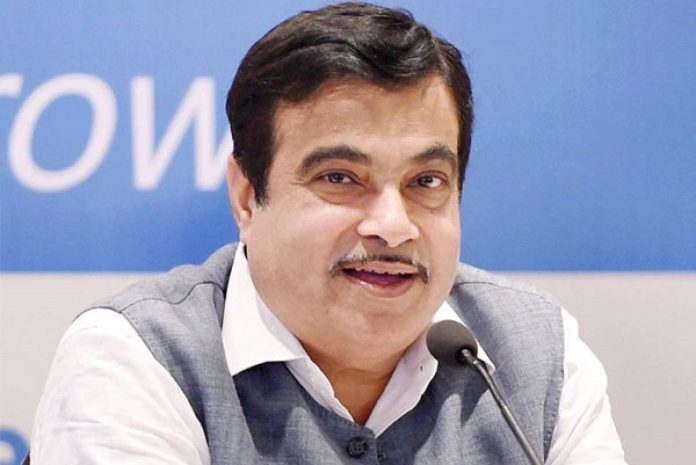New Delhi, Jan 21: Stressing upon the creating massive awareness about road safety, Road Transport & Highways Minister Nitin Gadkari has advocated for three days mandatory training of engineers of ministry, NHAI, PWD and various agencies related to road construction.
Aiming at reducing road accidents by half by the year 2025, the Minister said that reducing accidents is not a gradual process, every stakeholder should take it on top priority with immediate effect.
He gave the example of Sweden where zero tolerance towards road accident reduction is adopted.
Addressing the National Road Safety Council meeting, Gadkari has asked the State governments to motivate people for safer movement on road, the involvement of NGOs should be appreciated in this concern.
It was attended by Transport Ministers from the States of Andhra Pradesh and Bihar, DGPs or their representatives from states/UTs, and various other official and non-official members of NRSC.
India is constructing 30 km of roads everyday which is a great achievement during this pandemic time.
Suggesting involvement of social media on major basis for awareness and education about road safety measures, he highlighted that there is a committee of MPs related to road safety, and requested all the MLAs to also focus on the issue of accident reduction in their constituencies.
Ministry of Road Transport & Highways has formulated National Road Safety Council to advise on all the matters pertaining to planning and coordination of policies, standards of safety in the road transport sector, to formulate and recommend road safety programme for implementation by the State Road Safety Organization, to suggest areas for research and development to improve safety aspects in the road transport sector including maintenance of statistics of road accident and their analysis, to generally oversee and monitor at the central level the road safety measures undertaken by the State/UT agencies.
Road Safety Director Vivek Kishore explained in his presentation about the black spot rectification procedure and the status of rectification on National Highways.
Transport Minister from Bihar explained about various initiatives taken by the state government like “Sanyukt Jaanch Dal” (Unified Investigation Agency) for road safety audit, automated driving training centre, 40 hospitals are upgraded to trauma centres and 434 people are awarded as Good Samaritans. Other members of NRSC gave suggestions about improving the road safety situation by taking various measures including changes in the law, etc.
The Minister of State Gen (Retd) V K Singh asked the states to enforce various measures as best practices in their states at their own level also. He assured all the members of NRSC that the suggestions submitted by them would be looked into and their implementation will be taken accordingly.
According to the available data, robust ambulance services and highway patrol teams can reduce road deaths drastically as was evident in Tamil Nadu where road crash fatalities fell by 54% in 4 years – from 17,218 fatalities in 2016 to 7,287 in 2020. While Rajasthan, Karnataka and Kerala are keen to adopt the Tamil Nadu model, Maharashtra on Tuesday announced to implement it.
Now the Road Transport Ministry and World Bank will propagate the TN model —identifying the exact cause of fatalities, ambulance reaching site within 13 minutes, rectifying crash spots and smooth coordination among various agencies — which others can adopt to check the number of road deaths. The southern state deploys ambulances after identifying accident-prone locations, which has reduced response time considerably.
India loses 415 lives per day in road crashes, the most across the globe.


